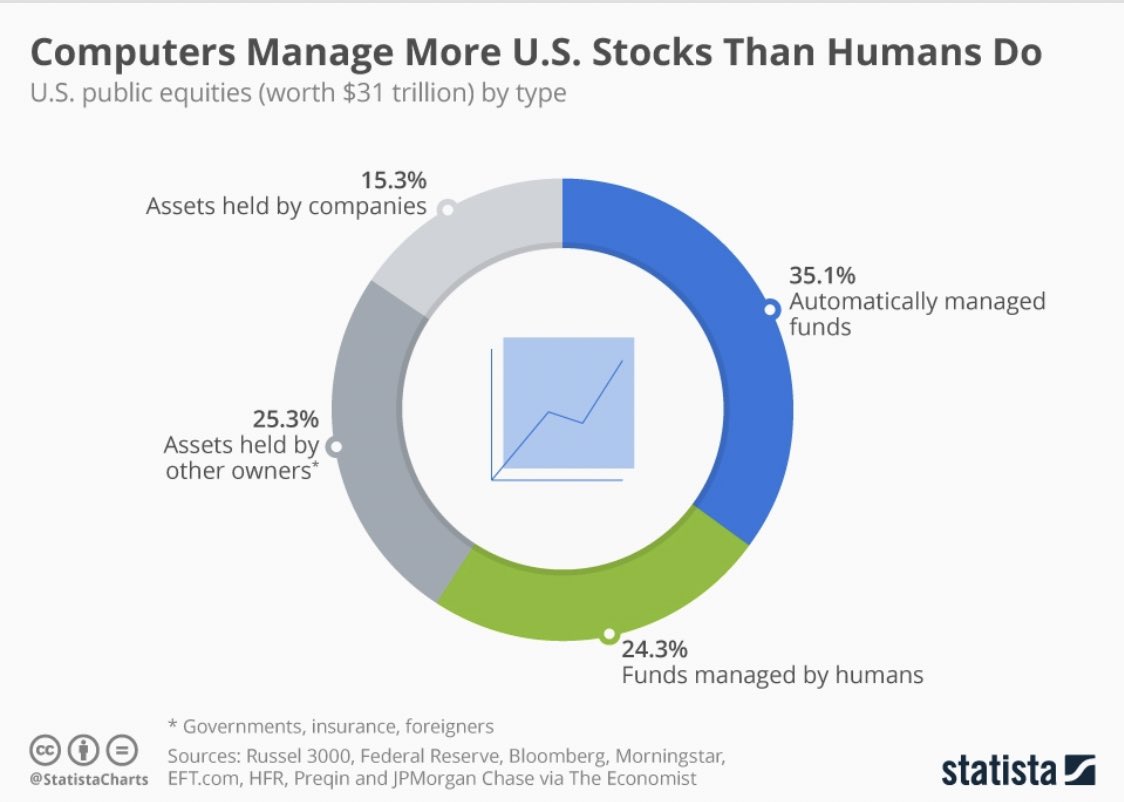![Split image: [left] Putin on sinking ship, [Right] Red/orange heatmap of world](https://www.timbuktucapital.com/wp-content/uploads/2020/05/Featured-image.png)
My best wishes as we adapt to new routines in our self-quarantine and social distancing. In addition to concerns about staying safe and healthy, we also have worries about the economy and the stock market. I have compiled a list of questions covering current market events and my answers to them. Please reach out to me if you have any additional questions about the market, the economy, or just to catch up.
Looking forward to talking to you soon 🙂
Why is the market selling off so much?
The stock market is selling off so much because of the combination of three things:
- The market was overvalued and needed a correction based on historical trends.
- As a result of the lack of economic activity due to the coronavirus pandemic, companies will not be able to make as much money as expected. Unfortunately, many will have to merge or file for bankruptcy.
- An oil war for market share has driven the price of oil from an average of $61 in Dec 2019 to $51 in Jan 2019 and down to $20.37 recently. Many oil producing companies and countries are facing bankruptcy and/or default. The oil industry is the #1 investor in the US economy.

Why is oil so important to the stock market?
One of the biggest shocks to the market is Putin’s desire to reduce or eliminate a major part of the US shale oil industry. In fact, over the past few years, the US shale oil industry has increased production whenever the OPEC countries headed by Saudi Arabia (biggest OPEC producer) and the non-OPEC countries (headed by Russia) reduced their output to maintain a healthy price for their economies. Putin (and perhaps Mouhamed Bin Salman) are taking advantage of the low demand in oil due to the Coronavirus pandemic to increase their production and bankrupt many of the US shale oil producers.
The bankruptcy of US oil producers will hurt many banks as they have been lending money to oil companies to expand their operations specially between 2009 and 2014. Also, the oil industry is one of the largest investors in the US economy in terms of capital expenditures.


As stated above, Russia feels that the US oil industry has been taking advantage of oil producers for some time. Their decision to pump oil to the maximum while demand has been at the lowest point in recent history is driving down oil prices.
Mouhamed Bin Salman, the crown prince of Saudi Arabia is probably expecting some pain given the painful cuts in government services that the Saudis have to endure since Saudi Arabia needs oil prices north of $70 to balance its budgets.
On March 6th in a movie-like way, MBS arrested all potential challengers to his rule including the former crown prince Mouhamed Bin Naif and his uncle (Prince Ahmed Bin AbdoulAziz -Al Saud). Meanwhile, Putin has gotten a favorable decision from Russia's Supreme Court that allows him to add to the referendum of April 20th the possibility that he will stay in power for another 16 years. This referendum was recently postponed due to the pandemic. However, given his 69% approval rating in February, we can expect this to be a done deal.
What will make oil prices go up again?
The upcoming US elections in November adds a layer of complexity for the US oil producers whose interests are at stake given that Trump is a major supporter of the industry. Bankruptcies in shale oil producing states like Texas, North Dakota, and New Mexico will not go well for the Trump base.
As far as the US stock market is concerned, I am optimistic that oil prices will stabilize and may increase as Texas oil producers are exploring the possibility of coordinating their production levels with OPEC (and possibly Russia). However, If the US oil producers do not act in tandem with Russia and the OPEC countries, this slump will likely continue for a while and hurt Trump's chances of reelection.
What period does this crisis look more alike?
At first, this period seems more like the shock of September 11, 2001 and its aftermath. The stock market did take around 13 months to recover from the recession that followed. Given that the shutdown is global (not just NYC or USA), I expect the recovery to take a little longer if the Fed and other governments had the same or similar responses to the events of 9/11.
The major difference this time is that Fed officials and Central Bankers learned during the 2008-2009 financial crisis that it is better to act fast and forcefully to protect the economy than to wait. In 2001, the view that Central Bankers can print money and flood the system with cash was unheard of. After the crisis of 2008, they have been more ready to print money to support their economies.
What part of the selloff is driven by the need for liquidity (cash)? What did the Fed do to alleviate this cash crunch?
There has been no place to hide except for cash in US dollars. A few days ago, all asset classes were down at the same time which is a rare event. Usually you would expect bonds or gold to go up when stocks go down. But on Tuesday March 17th, everything was down: stocks, bonds, gold, silver, oil, everything. This situation prompted the Fed to open more swap lines that allows central banks around the world, that cannot sell their US bonds in the market, to exchange them with cash. The Fed has also provided more liquidity (cash) to US banks as well so that they would not run out of cash for their customers. However, the cash crunch is likely to continue since the velocity of money (e.g. how many times a $100 is used to purchase goods and services in a month) has considerably slowed.
Why doesn't the volatility (roller coaster ride) let up?
Volatility is by nature a beast once it is woken up. The financial models of volatility show that today’s volatility is based on yesterday’s change in volatility plus a little more volatility. Volatility tends to cluster (for example be low for a year and be high for a couple of months) while tendency of asset prices to move in tandem increase during periods of high volatility. It means that diversification can fail in the short term. However, it is important to stay diversified and use short term US government bonds or cash as an anchor for a portfolio.
What are strategies to navigate bear markets?
Within bear markets there are several strong rallies that can be exploited to improve returns. Therefore it’s important to sell into those rallies (when prices rise sharply like they did last week) from time to time with the plan of buying them back at a later date and at lower prices. This strategy can enhance returns and reduce losses during this downturn. Sometimes it is even possible to generate positive returns for the overall portfolio if enough bear rallies are exploited (sell first, then buy back at lower prices). It is also important to avoid what is known as decision risk which is the tendency to change strategies (get out of the market) at the point of maximum loss.
What was done during the crisis of 2008? What does it mean now?
In 2008, it was possible to buy as the market was rallying and sell as the market sold off. In a period of three to six weeks during the 2008 crash, the market trended up or down for several weeks at a time. Unfortunately with the advent of computerized trading, which is approximately 35.1% of managed funds, market moves that used to take four to six weeks now take four or five days. It has become very important to be connected to the market and react very quickly.

What is the importance of sticking to your financial plan?

It is important to stick to your financial plan to avoid the mistake of selling at the wrong time (avoiding decision risk as explained above). For people who have many years until retirement, this could be a once-in-lifetime opportunity to buy attractive companies at discounted prices.
When is the right time to buy?
It is impossible to catch the very bottom during a bear market. The best approach is to buy at different price levels with the plan of getting a low enough average price. We are diligently working to use technical analysis and fundamental analysis (specially after earnings season in mid-April) to find good companies to invest in.
What are the present opportunities in the markets?
We will be looking at some of the companies that will survive the bear market and be in a position to buy weaker competitors. In addition, we will be looking at great companies selling at high discounts.
What will companies do when they report earnings?
Companies tend to overstate their dire circumstances during difficult times that affect everyone. They tend to report earnings that are a lot worse than they truly are in an attempt to clean up the accounting messes that accumulated over the years. Executives also prepare their companies to report better earnings faster when the market improves. So this earnings season could be a good opportunity to pick up companies that are overestimating how bad things will get for them. The airlines and restaurant industries would most likely present good opportunities given how depressed their stock prices are.
What don’t we know that may matter?
Some known unknowns :
- Will the virus dissipate enough to hold general elections in November?
- If it is NOT possible to hold the elections, can Trump take emergency powers to stay as president?
- What will happen to the census?
- Will Putin take advantage of this Coronavirus pandemic to gain additional strategic power in the world?
- Would Russia or China increase their global reach by helping poor countries hurt by the pandemic while the US focuses inward?
- Will the majority of businesses go back to their offices or would they adopt online collaboration and virtual offices?
- Would the pandemic have a second wave right around Christmas?
- Will "nefarious groups" help Yemini rebels take down some of Saudi Arabia's oil production to reduce supply?
- Will the US consumers return to their spendthrift ways?

We are pondering about all these questions and many more. If you have questions you would like to add to the list, please email me directly : ousmane (at) timbuktucapital (dot) com
References:
Putin voted in to stay 16 more years - https://www.npr.org/2020/03/10/
Mouhamed Bin Salman arrests cousin, uncle and many more Global Oil Industry Investments - https://www.iea.org/
Oil Regulators consider production cuts in tadem with OPEC Federal Reserve's aggressive actions averted more pain - https://www.bloomberg.com/news/articles/2020-03-22/it-s-not-the-first-time-opec-has-pulled-up-a-chair-for-texas








